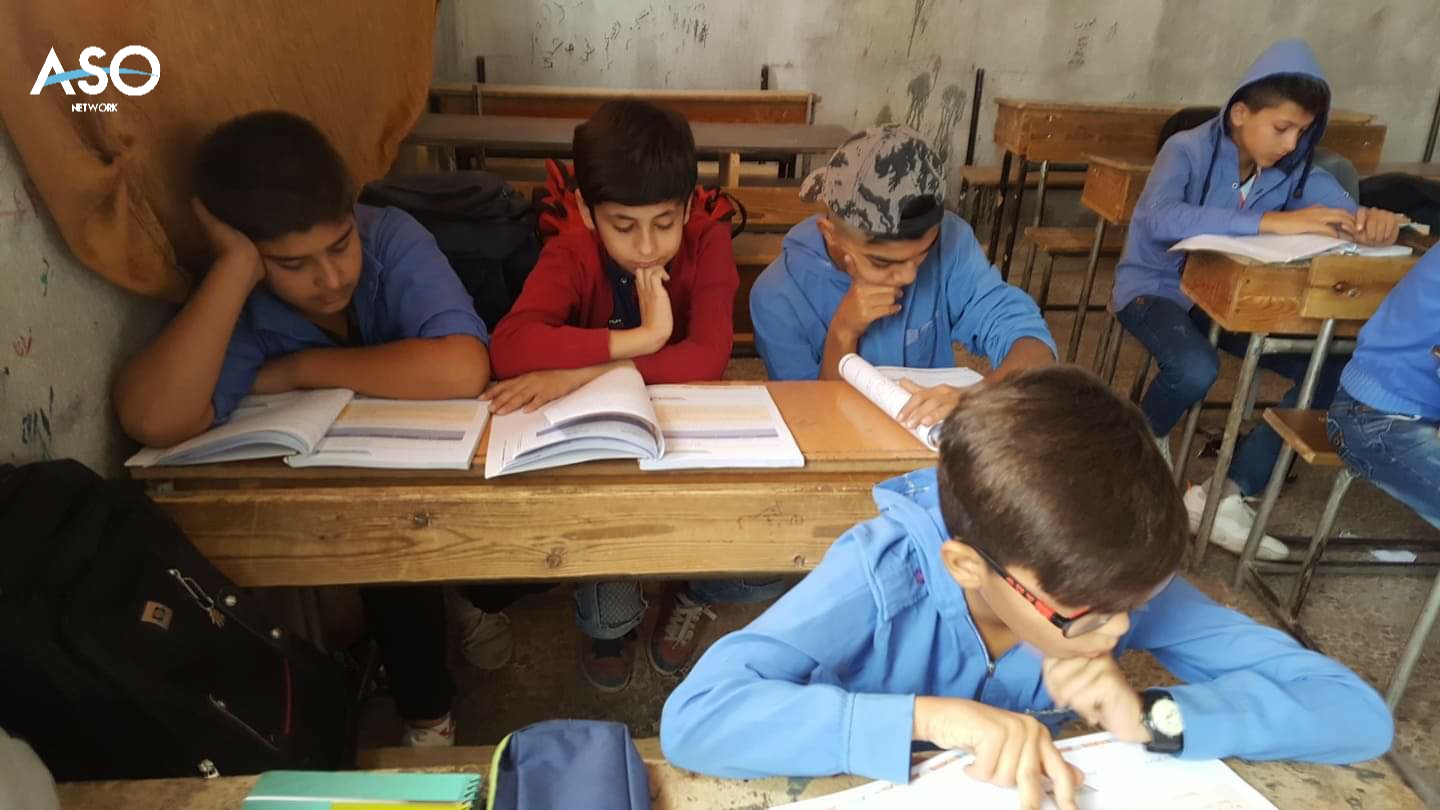articles
The desire to return to his city does not leave him and he misses his school

Aso-Lorin Sabri
“Delkash” stands in the corner of the classroom, bring out pictures of him and his classmates in the school, and looks at it, says: “We were all studying together in school, we meet every day, now where my comrades do not know.”
Delkash, an 8-year-old son of Sri Kaneh / Ras al-Ain and a displaced person in al-Qamishli, knew the school as a place of education, at this age, he did not realize that school could be a refuge for people fleeing war
Hundreds of families from Sri Kaneh, who fled their city after the Turkish aggression on October 09, towards different cities, people living in houses, people scattered in schools and shelters, and some are spreading the outskirts of cities.
Delkach is still full of memories of the pictures, seeing pictures of him and his friends playing in the school yard, and he does not know that the school turned into wreckage in the bombing.
Suddenly, Delkach’s eyes lie on his blue school bag, locked in a neglected corner of the classroom, which has become a little home, since he was displaced from his hometown of Sri Kaneh, and began to open it thinking he would browse his books and books.
But he was shocked and disappointed that the books, notebooks and stationery he bought from a library in his city, were replaced by medicines of pressure, diabetes and chronic headaches, which the mother put in haste, when she saw the Turkish army’s air, and heard the artillery shelling began to target the city, did not see at the time But the bag “Delkash” to empty the content of books and notebooks and stacked the medicine bag in it.
6000 children according to the Education Authority since the beginning of the Turkish occupation attacks on Sri Kaneh is deprived of education, a large number, displaced children do not receive education and this is a disaster, education is a fundamental right, and international law provides for the legal right of all children to receive free primary education And mandatory.
In the middle of the conversation, he suddenly tells Aso, : I have memorized my weekly program because my teacher instructed me to always write it on the blackboard and I was always superior at school, and today I am sad because we live in a school, and we see the seats with our eyes and the blackboard, but neither students nor teachers are now Shelter us.
“The first day I arrived at the school I entered all classes here and I imagined for a moment that this is my school and the teacher will just enter and start explaining the lessons” he added.
“I want to go back to my city and my school,” he shouts
But the voices cannot be heard. The voice of war is too strong to be heard.
Education remains a prerequisite for the protection of children in situations of displacement and may extend throughout childhood. The longer children stay out of school, the less likely they are to finish school.
In conflicts there must be a neutralization of the safety of children and the guarantee of their right to education, but not in a war where the aggressor is an occupier.












